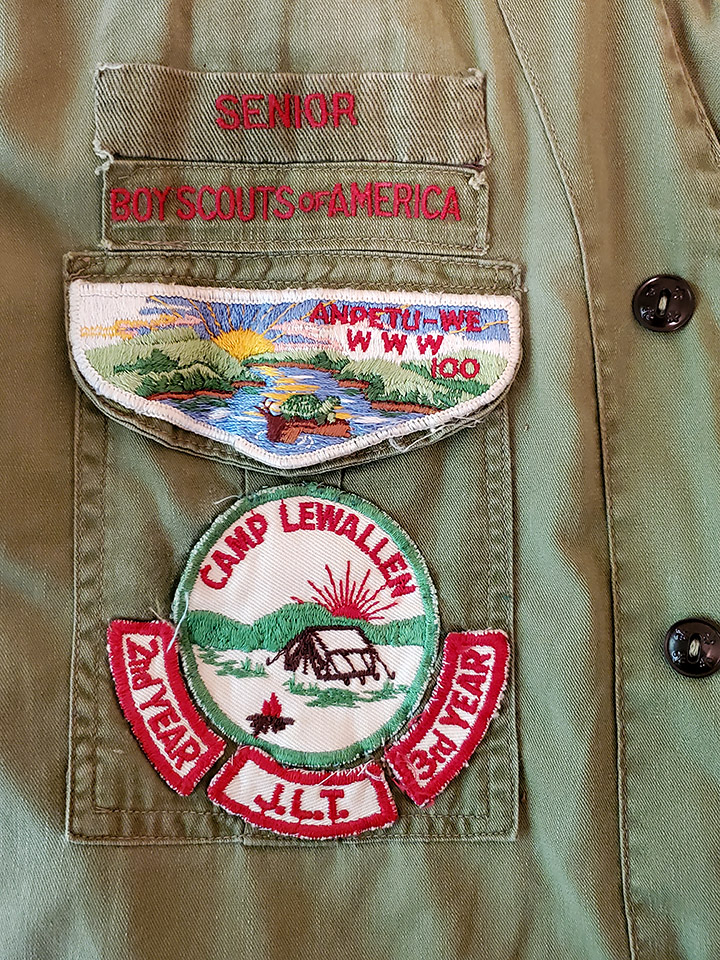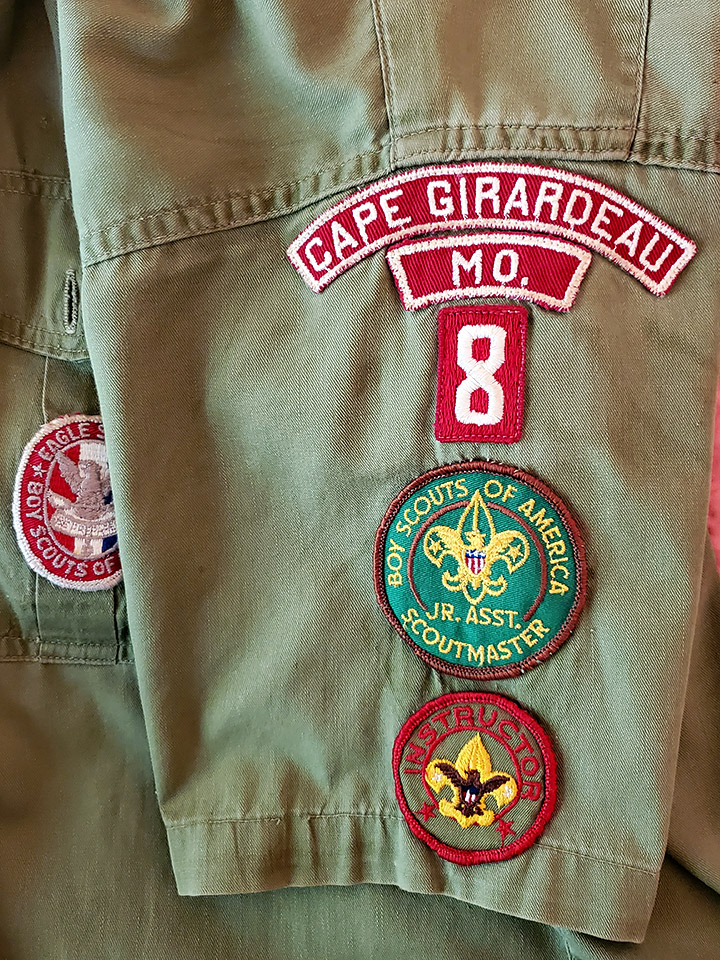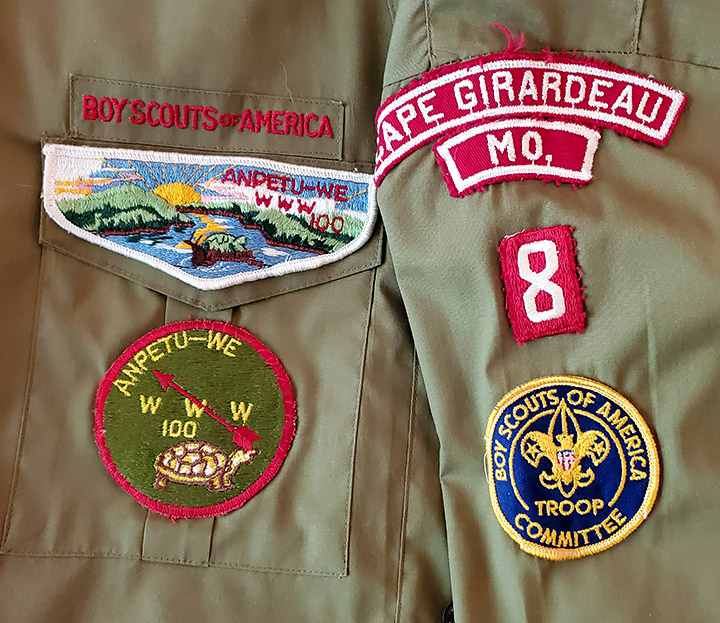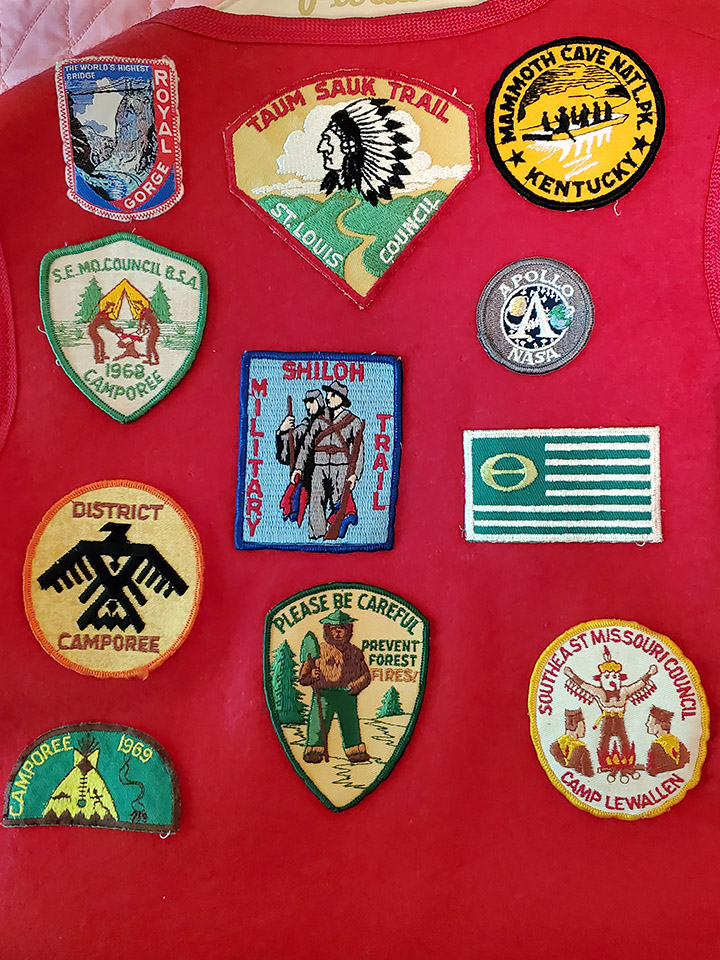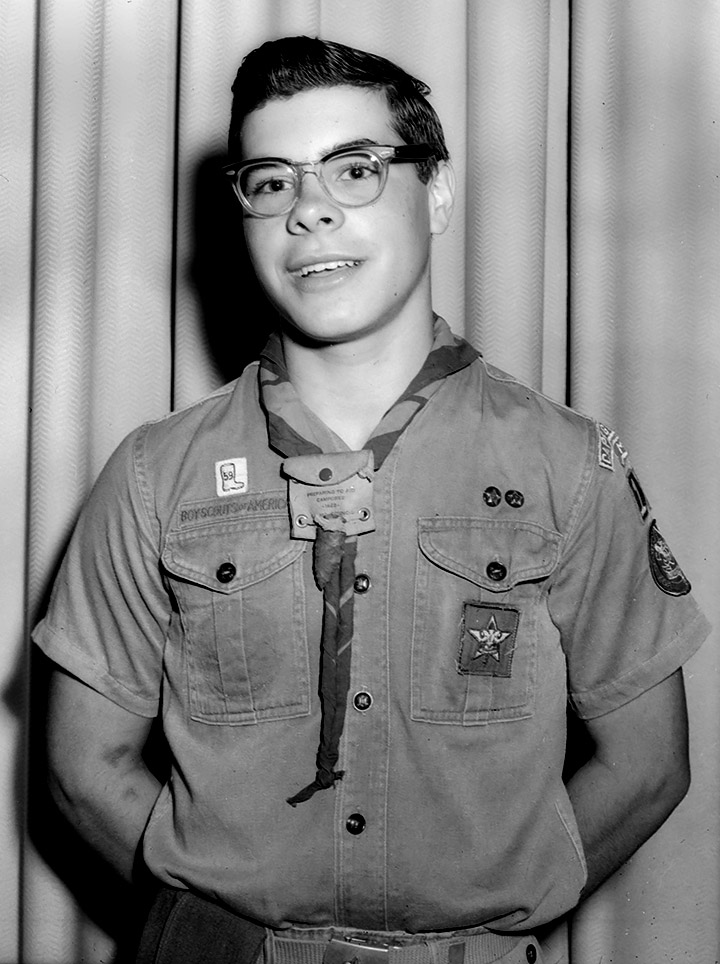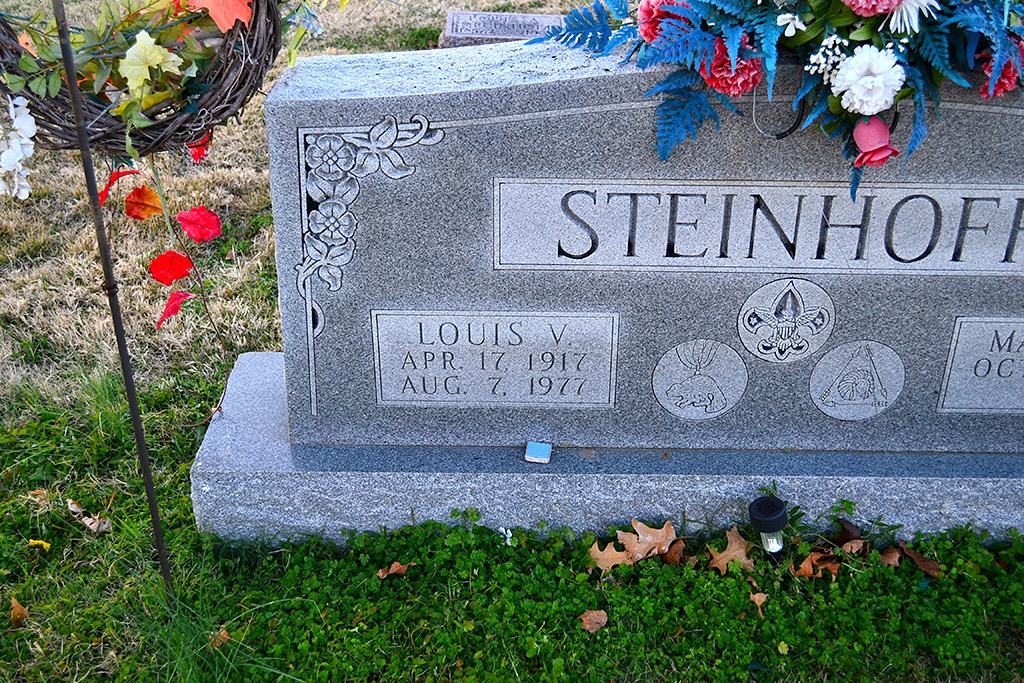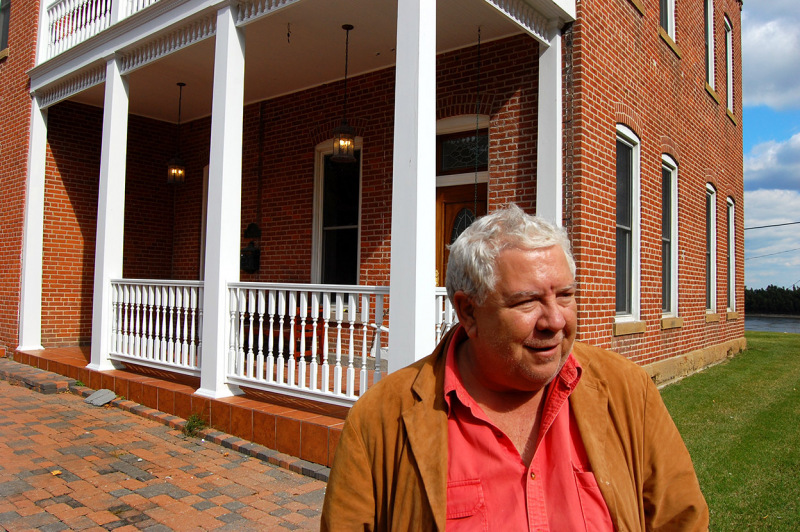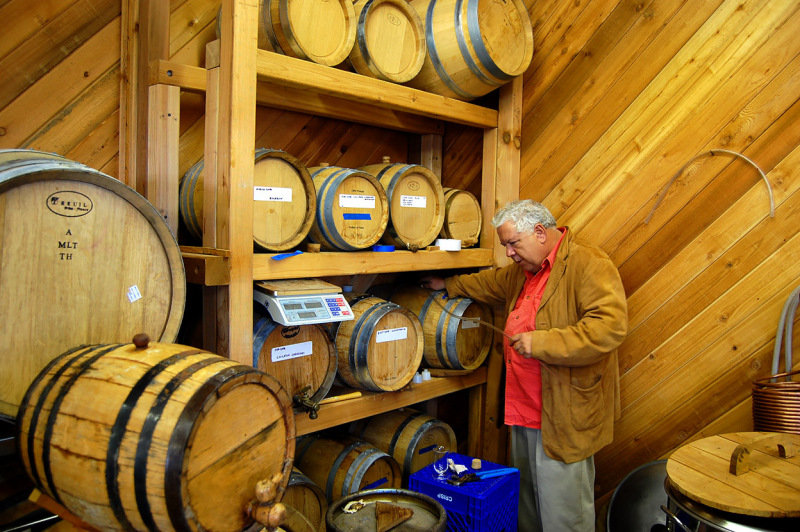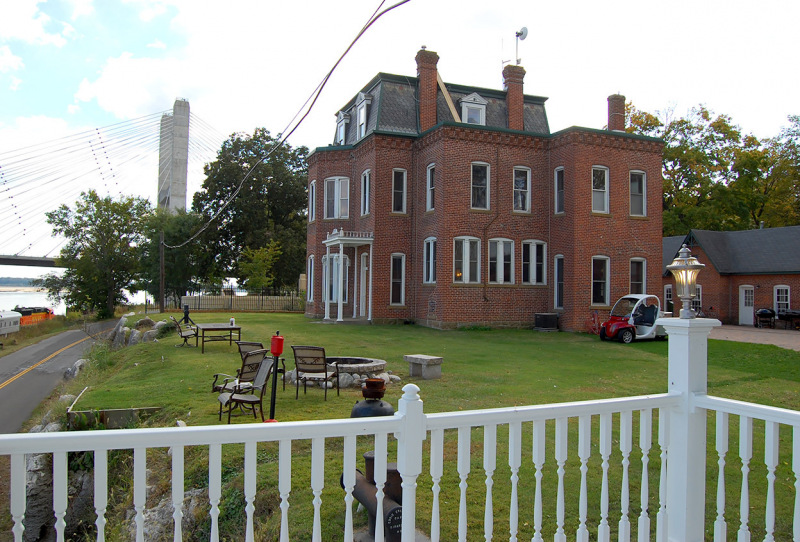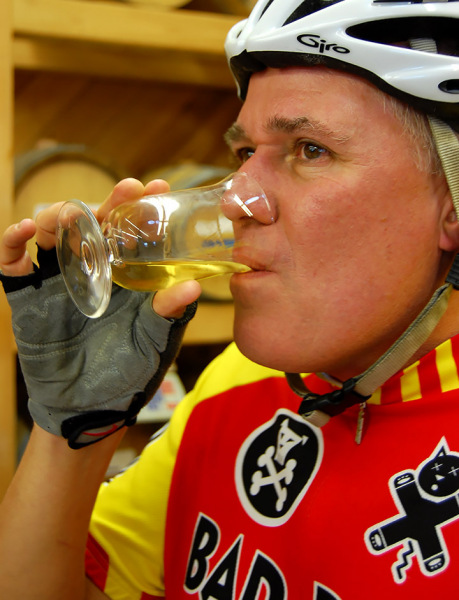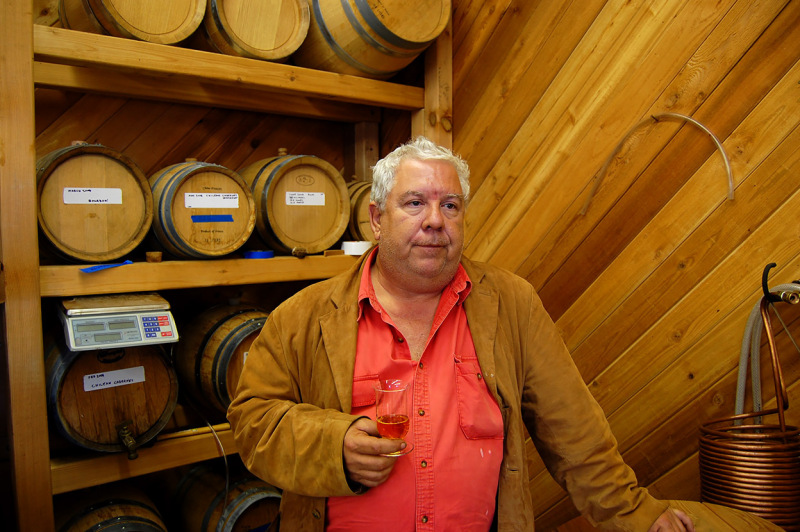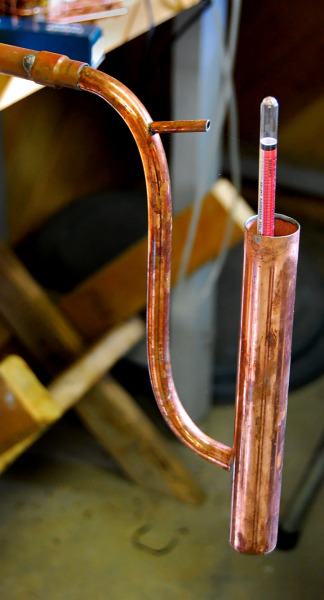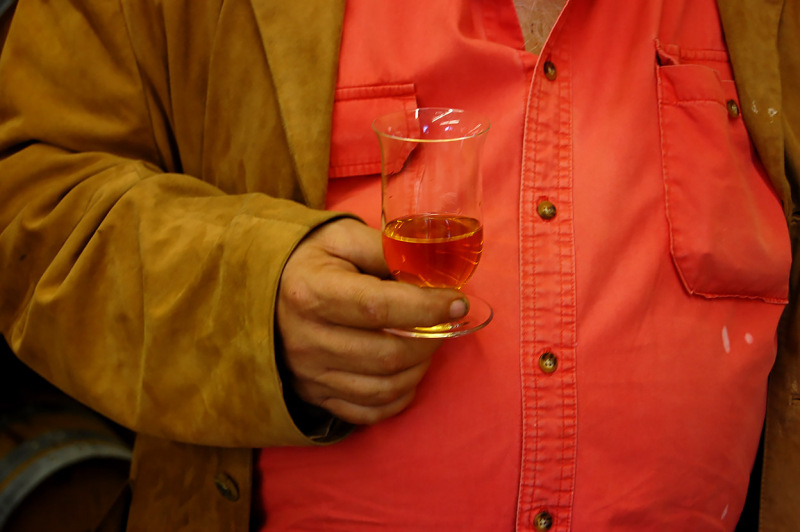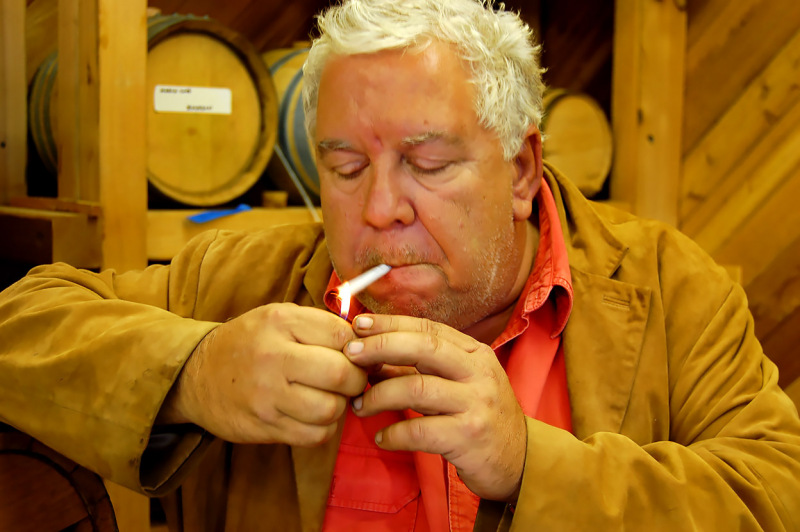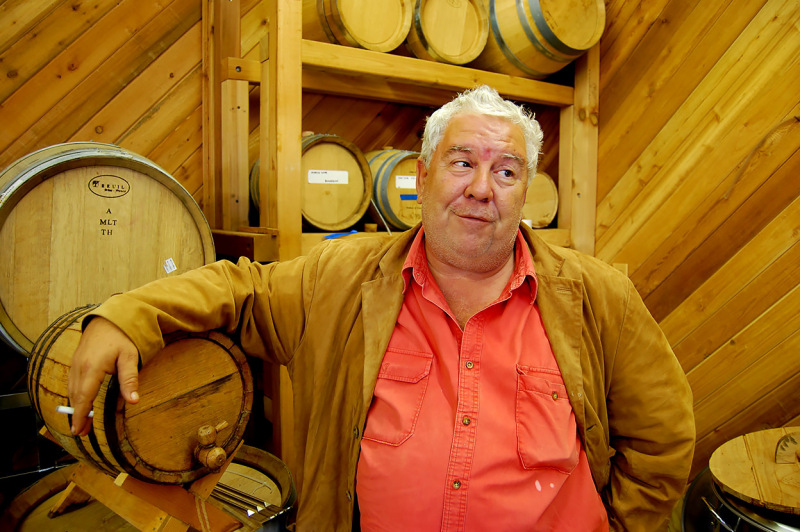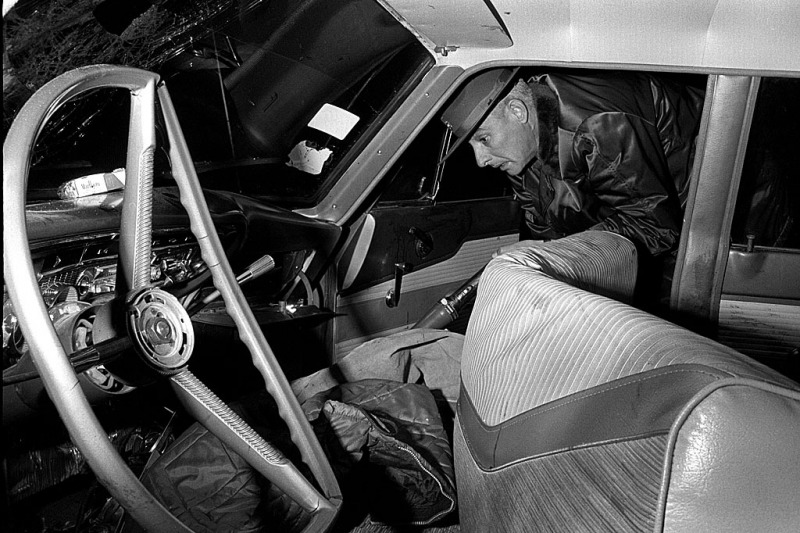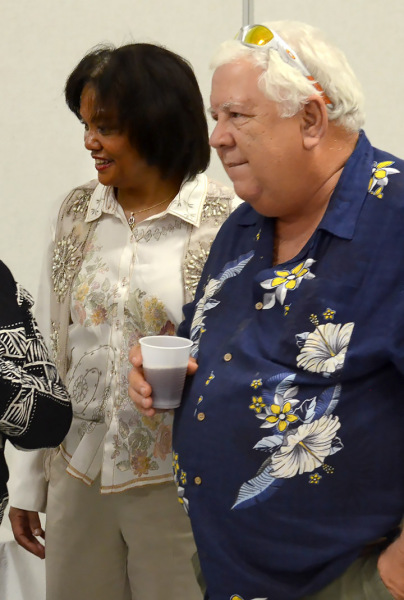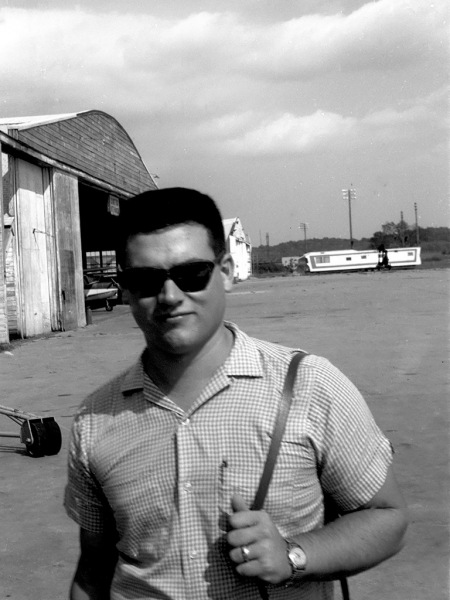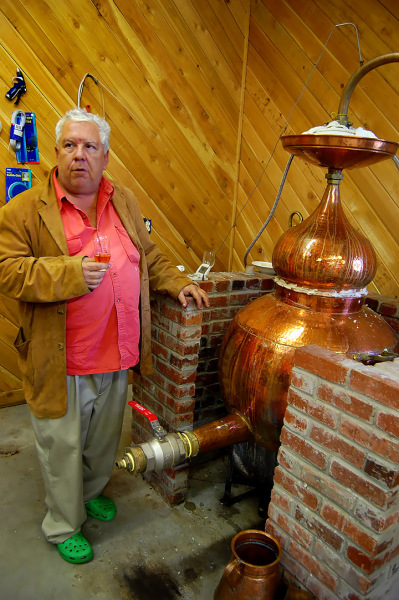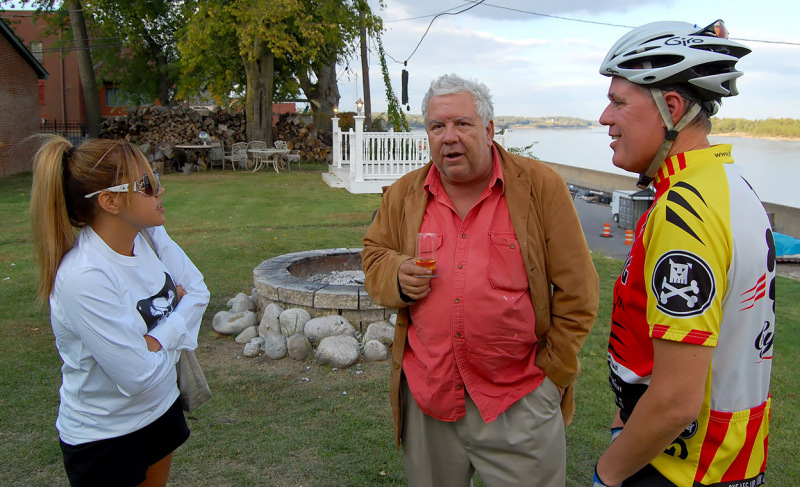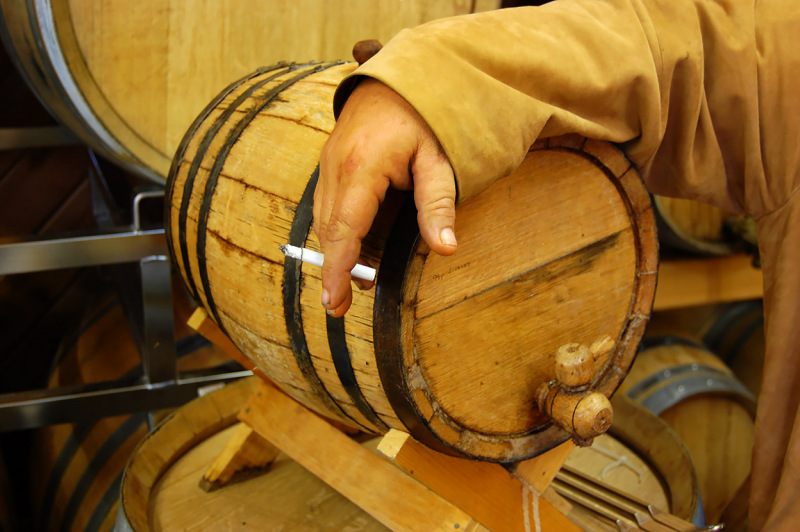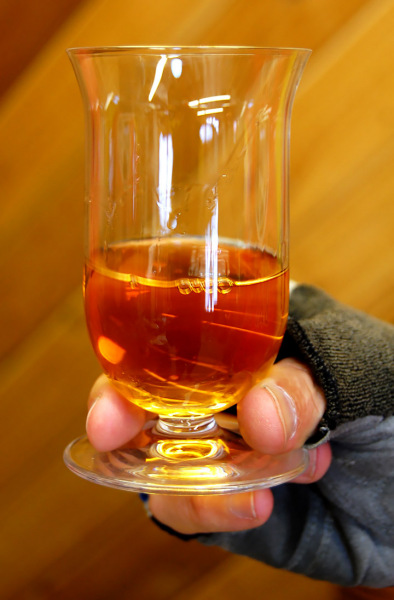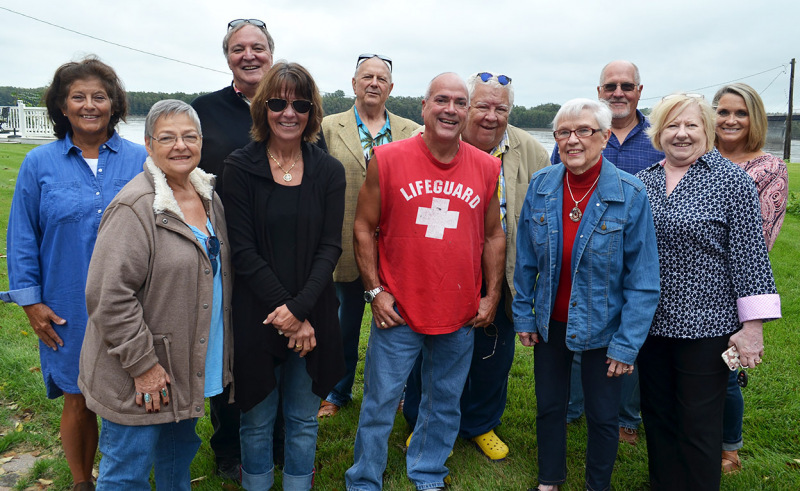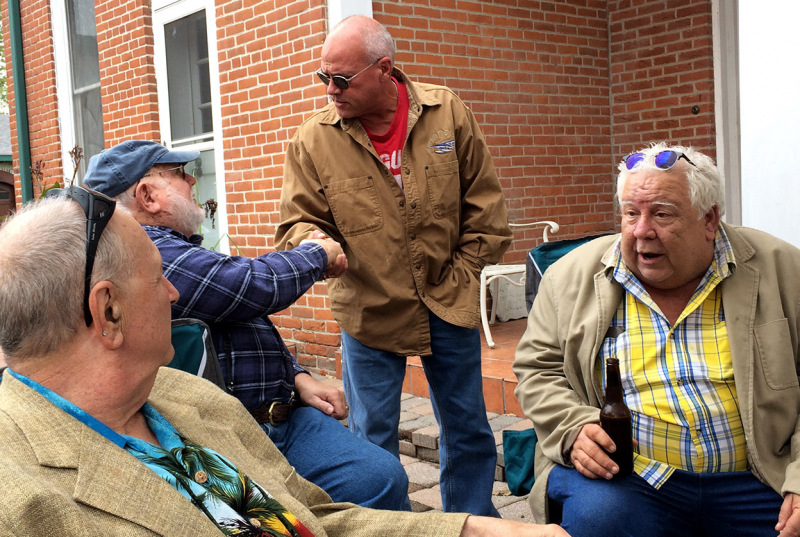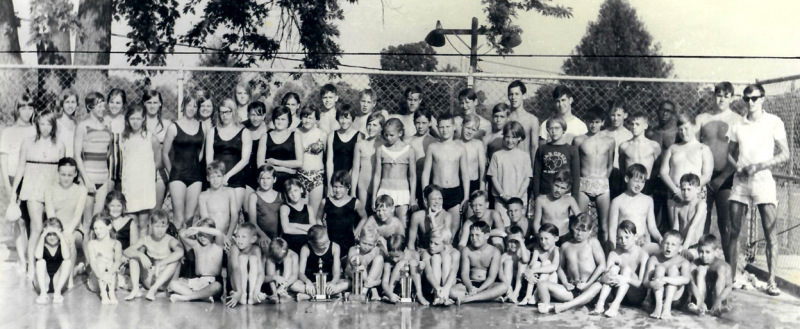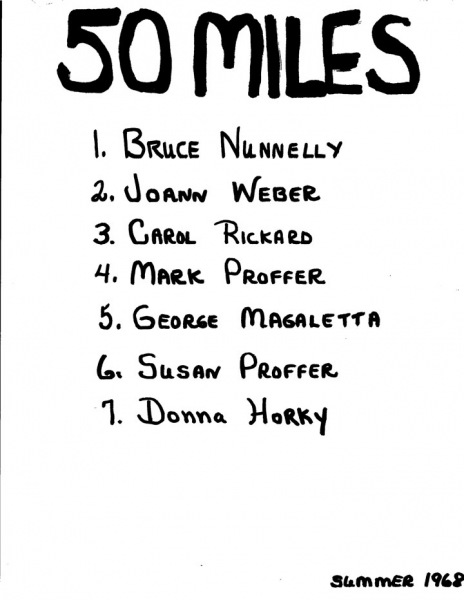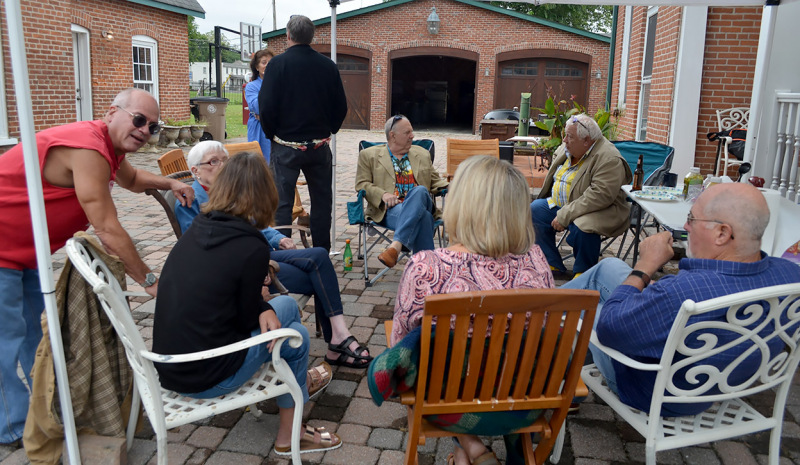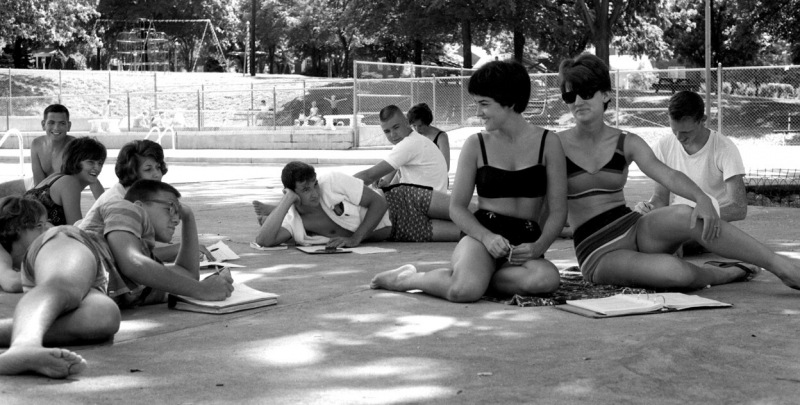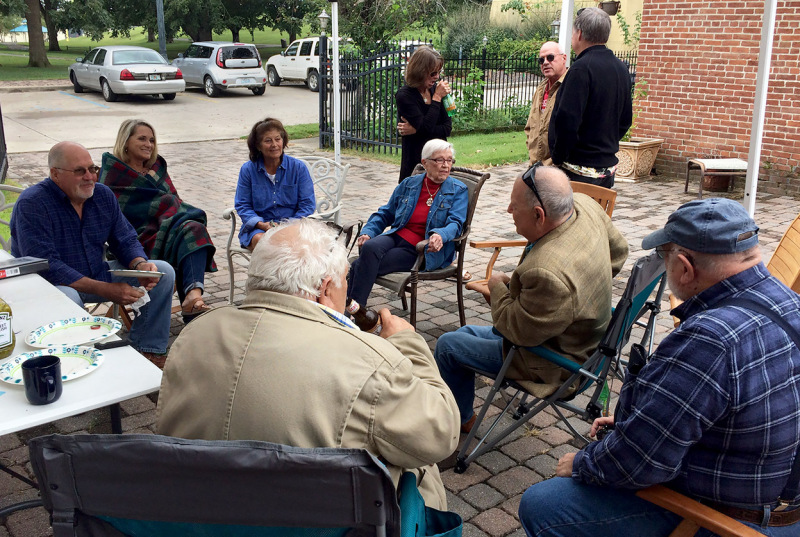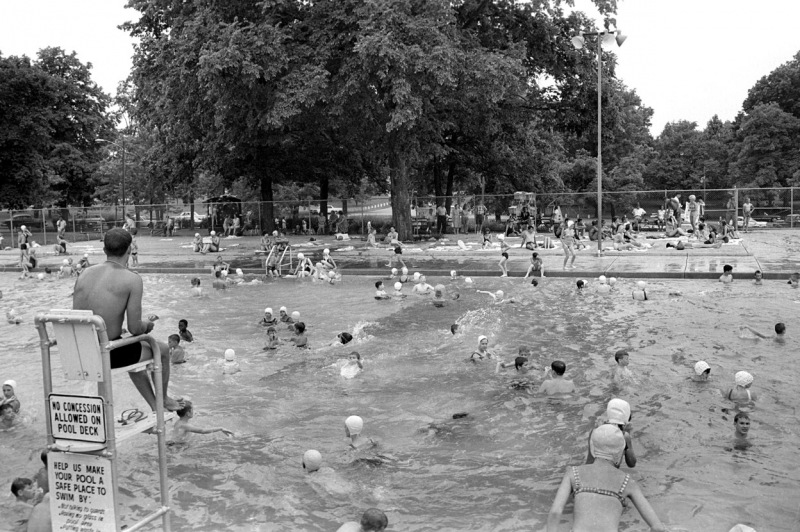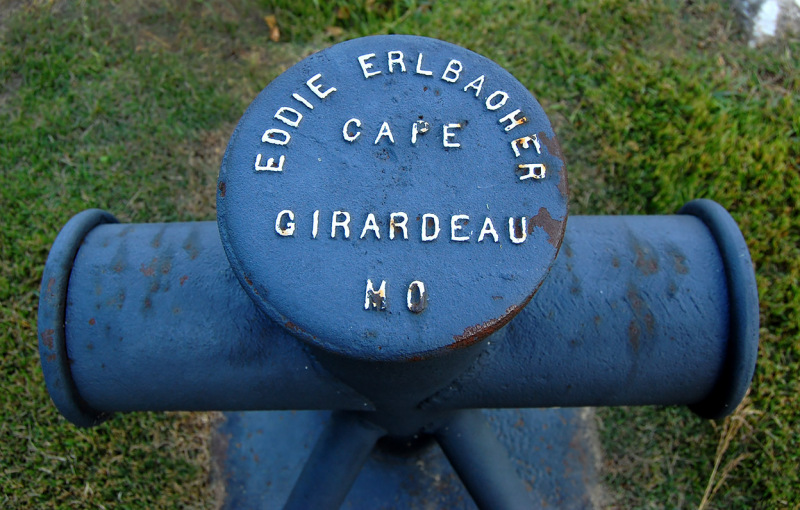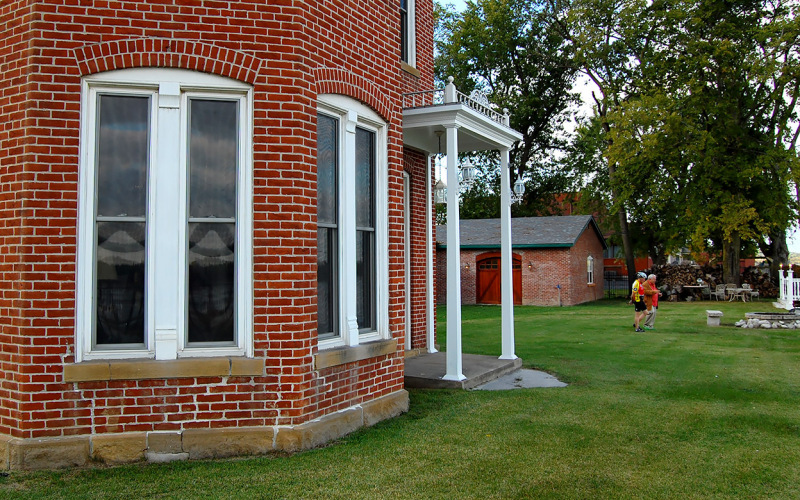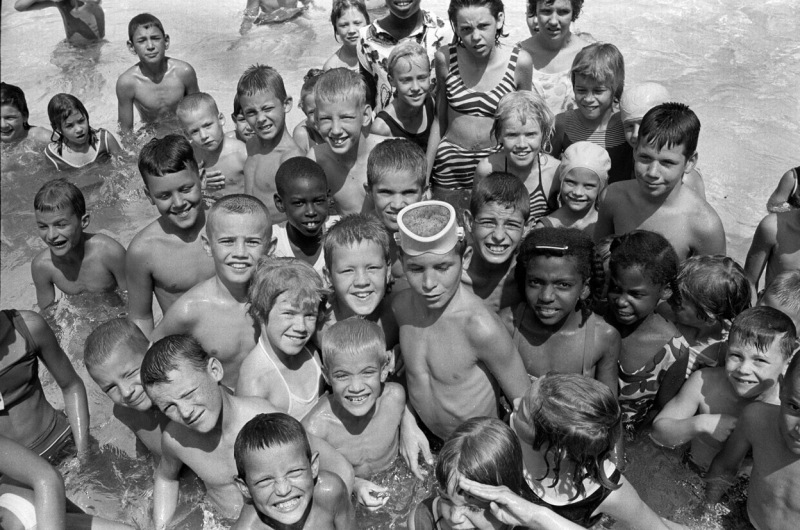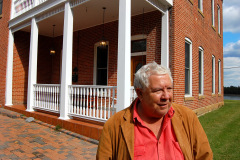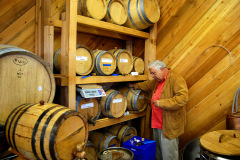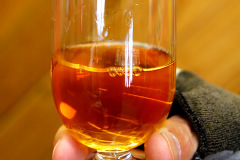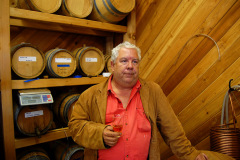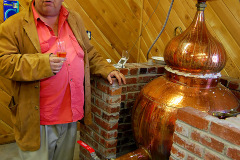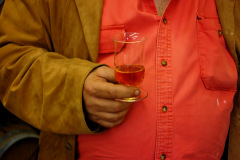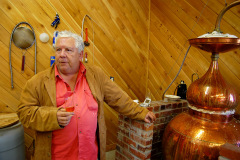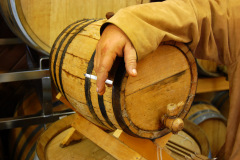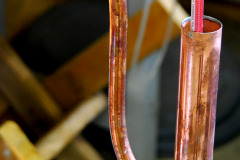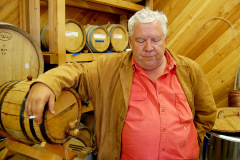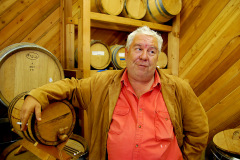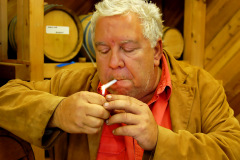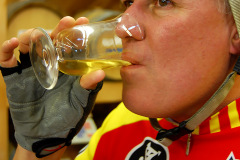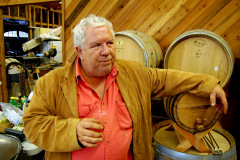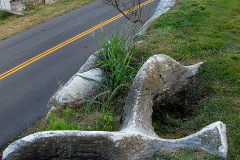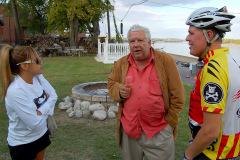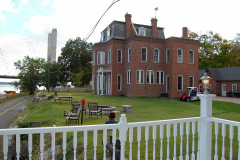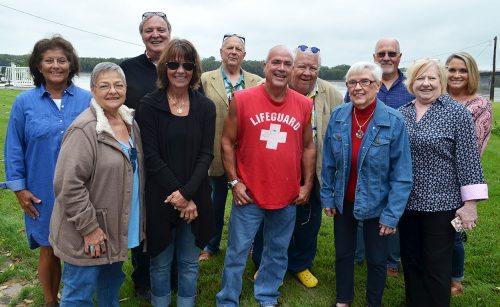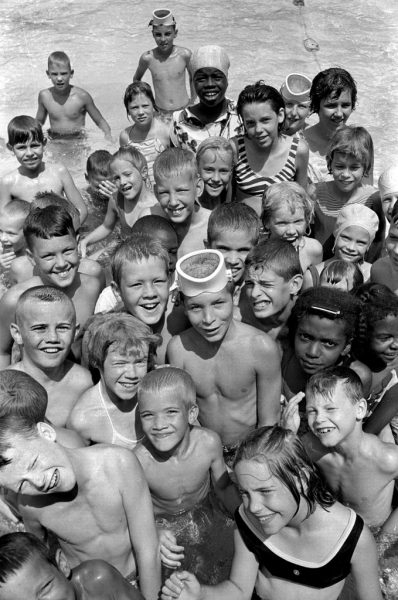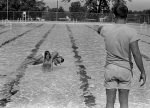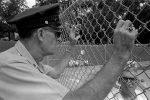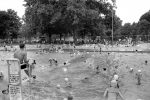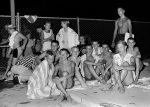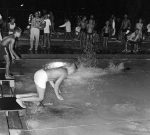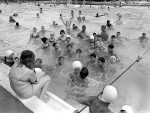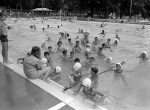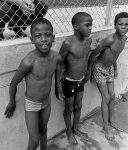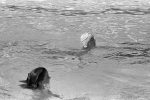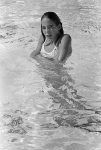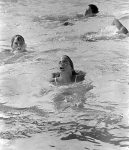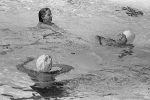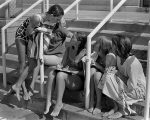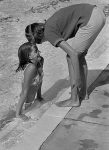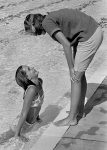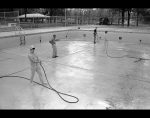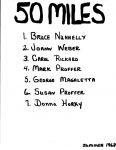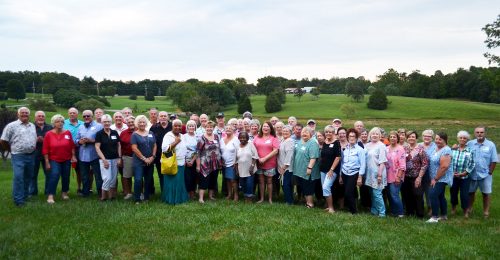Over the years, there have been only two or three stories that were so big that I couldn’t get them written. Jack Rickard is one of those stories. Seeing his obituary on August 31, 2020, gave me the impetus to finally do this. Even though it’s long, I’m afraid it fails to fully capture the man.
Camera pointed at bridge
Brother Mark and I were cruising Cape on our bicycles on a beautiful October afternoon in 2008, when we stopped for a break at the Mississippi River overlook where the old bridge had been. I had noticed some time ago that there was an active web cam pointed at the bridge, and I pointed it out to Mark that I suspected it was the one mounted on the house at 14 Morgan Oak.
Do you guys have daughters?
While we were admiring the beautiful woodwork on the garage doors behind the house, we noticed a ruddy-faced man. He was wearing a red shirt only a couple shades lighter than his face. We introduced ourselves and complimented him on his house.
With no preamble, he asked, “Do either of you guys have daughters?”
“No” we confessed.
“Well, I do, and I drink. Come on.” We had just met Jack Rickard (his first name was Marion, according to his obituary, but, trust me, this was NOT a Marion kind of guy.
This is not your typical Cape garage
He led us back into the garage through a room that looked like a cross between a automotive garage and a laboratory. Hanging overhead was a vintage wooden Chris Craft boat, and the rest of the room had small cars and lots of scientific paraphernalia coexisting.
Then we entered a wood-paneled room that had wooden casks of what we immediately assumed were spirits, particularly since the room also contained some highly-polished stills made out of imported Portuguese copper.
14 Morgan Oak built in 1890
Jack was a fountain of history and lore. The house he lives in was built in 1890, and the original builder was an accountant for the Houck Railroad. “I don’t think he spent any time in it, because he went bankrupt even before the construction was done. Ernest Osterloah bought it next. The family had three girls who never married, so far as I know. They owned the three small houses built in 1904 behind the big one.
After the patriarch and Main Street book store owner died, the family sold the house to the Cape Bridge Company in 1929. Between 1929 and the 1970s, “it was Cape’s Hard Luck House. Almost everybody whose house burned down or their dad died or some other tragedy occurred ended up down here for 40 or 50 days. It was almost kind of a flop house.”
Trucks went ‘whomp, whomp, whomp’
Jack bought the house in 2003 while the old bridge was still active. “It was almost impossible to sleep with the constant ‘whomp, whomp, whomp’ of the truck traffic causing the windows to rattle and the walls to shake.” He made The Missourian by refusing to leave when the old bridge was demolished by blasting in 2004.
We asked if he had ever considered opening up the restored house as a bed and breakfast (that’s before we learned more about him).
“I like bed, and I like breakfast, but I’m not a sharing person. We’ve got people pounding on the door all the time wanting to know when the museum is going to open. I open it in my underwear and tell ’em it’s my home.”
Mark was a satisfied sipper
We spent almost two hours admiring his distillery, sipping on his wares and getting an education on the brewing arts. Well, Mark did most of the sipping. I’m close to a teetotaler and said good whiskey would mostly be wasted on me.
Mark, on the other hand, can fake sophistication quite well. He was throwing around terms like “buttery,” and “full-bodied,” and “smooth with a kick.” My wine education consisted of drinking Ripple we hid in photographic paper boxes in the fridge of The Ohio University Post. The more Mark sampled, the more he tried to convince Jack that he should adopt him, even going so far as calling him “Dad” from time to time.
Missouri law has loophole
Jack was taking advantage of a tiny loophole in Missouri laws that allows private individuals to produce wine, beer and alcohol for personal use. Most states don’t allow the latter, and he said the feds could probably put him away for 3 to 5 years for doing it, but they have more important priorities.
The brewer as a scientist
He takes a scientific approach to his work. He can tell you more about the wood in his casks, whether they are charred or straight wood, the precise ingredients in each one, and on and on and on. My eyes were starting to glaze over from knowledge overload, and Mark’s were beginning to just plain glaze over.
Drinking whiskey isn’t a race
He rhapsodized over the health and spiritual benefits of the contents of his casks.
“Good whiskey: You don’t really have to drink all of it. Kids, they think they can drink it all. But, it’s OK to take a glass of whiskey and just sort of drink it all night. Just sip it. I’ll often have a glass of iced tea or a beer, but I’ll also sip a whiskey. It’s not a race. You don’t have to drink all of it the first time. You have to drink it regularly. It’s good for your health.
“It’s good whiskey. It’s expensive, but if you’re not drinking a bottle a night… if you’re having two fingers in a glass, it’ll last a long time. It’s not like swilling beer. I actually think it’s phenomenally good for you.”
Drink to where world starts to make sense
“But, if you swill it down like a a heathen, you know, it’s probably going to be unpleasant to drink. But, if you sip a little bit until the day doesn’t have quite a rough edge, it makes the sunset look better. You drink just to the point where the world is starting to make sense, and before you lose your mind entirely. “
Better than bass fishing
“It’s probably the greatest hobby in the world. Here’s why: it doesn’t cost any more than bass fishing. I mean to do it right, you have to buy five or ten thousand dollars of equipment. That’s half as much as a bass boat, and you ain’t caught a fish yet. If you lose interest in distilling or wine making for a year or two, then you just don’t do it for awhile. Then you go back and taste it. It really likes the idea that you left it alone for two years. It got better while you weren’t doing anything.”
We disagree on drinking and driving
We had to agree to disagree on one topic: drinking and driving. I’ve photographed too many wrecks caused by drunk drivers. That’s something I have zero tolerance for.
Jack has a different viewpoint:
“I can tell you two things:
“1. Drinking doesn’t cause accidents. At all.
“2. You are more likely for the drunk to be killed by a 17-year-old driver, than the reverse. By several orders of magnitude. It’s not close.
“My dad drove around all the time with a six-pack next to him, about half roaring drunk, and he never had an accident in his life. How could that be? He was a pretty good driver. He didn’t hit people, and he idled around at about 25 miles per hour all the time.”
After a spirited exchange (no pun intended) we decide that it was a topic best dropped. (Note: I don’t know if this wreck being worked by Trooper Norman Copeland was caused by drunk driving, but it’s typical of others that were.)
Jill Rickard dropped by
His wife dropped in to complain that she had been trying to call him on his cell phone, and he hadn’t been answering. The photo is of Jack and Jill Rickard at the Nettie Hopper-Spicer Family Reunion in 2013.
He’s even got a DC-3
His excuse was that he had been up in his helicopter taking pictures and must not have heard it ring. That caused my ears to perk up a bit. Later, I asked my old earth science teacher and pilot Ernie Chiles if he knew anything about Jack and aviation. (That’s a picture of Ernie circa 1966. I’m pretty sure that hangar burned down in a lightning storm not long after.)
“Yeah, he’s got a whole hangar full of aircraft at the Cape airport, including an old DC3 that he flies.”
That means he wasn’t BSing us when he said, “I’m type-rated for the DC3, and I’m grandfathered forever. I’ll never have to take another check ride again. The FAA ran out of people who could fly them, so they just grandfathered everybody who had one. You’ll have one until you die, then that’s it.
“Planes will do two things: eat money and kill you. The more money you throw at the first, the less likely the second will happen.”
He could afford expensive toys
At some point in the afternoon, Jack let slip that he could afford all his toys because he got in on the ground floor of the internet. He gave a lot of credit to Al Gore, despite all of the people who mocked him.
Al Gore was instrumental in the birth of the internet. He didn’t turn the screwdriver, but he managed to get a bill passed that provided the money that established it. “He provided the stone you needed to make stone soup.”
Jack published a magazine called Boardwatch that attracted a large enough following that he could sell it for close to forty million dollars. (Terry Hopkins will have more on that later.)
Google wasn’t much help
To be honest, my BS meter had been twitching all afternoon. I couldn’t quite figure out if Jack was real or just a really good fibber. A Google search didn’t turn up much on him. One reference, though, quoted someone as saying that “Jack Rickard just fell off the edge of the earth.”
The next day, I stopped by to see him to drop off a CD that contained copies of the photos I had taken, plus the recording of the session.
Dropping off the edge of the earth
“Jack, I read something about you dropping off the edge of the earth. I told you that I was a journalist, but if you truly wanted to drop out of sight, I won’t use any of this.”
“Well, I didn’t drop off the edge of the earth, but (gesturing to the edge of his house overlooking the river), “I can see it from here. I’m not hiding.”
Meet your new husband
Just before Mark and I took off, an attractive young woman walked up. Jack pointed to Mark and said, “Meet your new husband.”
It was his daughter. Even behind her sunglasses, I could see her roll her eyes. With a flip wave, she left us.
Nobody gets out alive
“I buried my mother at 93; she didn’t know who she was, her skin was coming all apart; she wasn’t really happy. My dad died horribly over the years with Alzheimers. It’s an ugly thing, and I can’t remember a whole lot about it, so it might be coming my way.
“I have to be OK with it. I know one thing for sure: nobody gets out of here alive. Everybody in the country treats death as an exception: ‘Oh, what happened?’
“It’s as natural as being born. In the United States, we’re kinda like in a brain fog over this. ‘Oh, no, my grandmother died. She’s in her 90s. She’s dead. What happened? Is she exceptional or what?’ So, I’m somewhat fatalistic about it.”
He’s cheated death
“But the one thing that occurred to me, both in the Plymouth I rolled seven times at 120 miles per hour and in an airplane crash on an aircraft carrier where everybody died but me, is that it’s a whole lot louder here than it is on TV. The decibel level is searing There’s the shrieking of the metal and the busting of the glass. You can hear it with your stomach. It’s so loud, it’s so loud.
Jack and the Pool Rats
In the fall of 2018, Wife Lila and some of her Class of 1966 buddies decided to hold a pop-up 70th Birthday class reunion since so many of them were hitting that landmark year.
In addition to that, the Capaha Park Pool Rats figured they’d split off for a reunion at Jack’s house since everybody was in town. I asked Terry Hopkins to pen some memories of Jack. Here’s his account as only Terry could recount it.
Boy with the towel over his head
When one of your students or “kids” you have coached dies, it is a very strange experience. I always feel that is not the right way, we older people should go first. It is akin to having one of your kids die. Maybe it is exactly like having one of your kids pass away.
The young boy with the towel over his head, who was always the last in the pool turned into a well-respected adult, who was truly a leader in the biggest life-changing technology in the last 100 years. That was Jackie, a dry wit with a deep understanding of technology and way of explaining it to others. Rest in peace, I am sure heaven will need improving, and you, my friend, will be leading the way.
Gosh, stories of Jackie Rickard, Jack was his dad, so “Jackie” was what I always called him, and I was not ever corrected, even by him, ever.
1968 swim team
My earliest memories were of Jackie at the pool early in the morning. He was probably 8 or 9 at the time. Jackie was not a morning person, unlike his brothers Tommy, and Andy. All the kids would be running and jumping around at 7 A.M. swim practice and Jackie would be slowly moving around with towel over his head like an old man, and usually was the last one in the water.
Once in the water he was fine and swam with an ”I am not awake yet style.” He was fast, and a versatile swimmer. The boys relay team he swam on was rarely beaten. Jackie could – and did – swim all the strokes and excelled in butterfly and breaststroke.
Seven swimmers logged 50 miles in 1968
It is hard for me to talk of Jackie without his family because they were ALL involved at the pool. All the Rickards swam on our team: Tommy, Andy, Carole, and Patty. Patty even coached the little kids in the diving well at Capaha Park pool. Mrs. Rickard, who we all called “Ma Rickard” ran the swim lessons in the morning, so she and all the kids were around all the time. Good family and good kids!
Jack mastered the black arts
As Jackie got older, (15 or so…) I hired him to be a basket boy at the pool, probably his first job. He excelled in it, giving out pins for your basket of clothes, learned to read the water PH and check the chlorine levels every hour. He even learned backwashing the pool and – the highest of the black arts in those days – changing chlorine gas tanks! At this point, I noticed he had a brain and could use it.
Who knew internet was going to be big?
In the 80s, I was visiting Cape and went by to see the Rickards. As it happened, Jackie was there. He was excited to show me this new thing called The World Wide Web. With an old phone modem, computer, and an orange monitor, he hooked it up and messaged a guy in Washington, DC. He asked the guy “What is the weather like there?” The guy typed back, “nice and sunny”. This whole process took about 10 minutes, and he was smiling!
I picked up my brick phone and called the time and weather phone number in Chicago, and gave him the time and weather in 10 seconds. I patted Jackie on the head, laughed a little and left. Who knew this was going to be big!
Jack founded Boardwatch magazine
Years passed. Around 1995 or so, I started working with a new thing called the internet and, in my studies, I ran across a magazine called “Boardwatch.”
Boardwatch was THE ultimate source for all information on the Internet, Jack Rickard was the editor/owner. Boardwatch was having a convention in San Francisco for all these new internet people.
I called to order a ticket to the convention and talked with Patty Rickard who, at the time was the office person, and low behold she GAVE me a FREE ticket to the convention, which was pricey! I flew out to San Francisco and attended the convention.
Jack was King of the Internet
During the convention I was invited by a nice lady to go to penthouse to meet with Mr. Rickard. I thought to myself, wow this is long way from Cape Girardeau, Missouri. Jackie and I got to meet and talk, joke around a little and then “Mr. Rickard” was whisked away again. I was left standing with all the major officers of Cisco Systems and Intel. They were all impressed I knew the Great Man and even bought me a drink or two.
Our Jackie was King of the Internet, and I was introduced as his coach to one all. Yes, our Jackie Rickard was the KING of the Internet and the source of ALL knowledge at that time. It does make you proud when one of your kids, (students, people you coached) does well, and Jackie was at the top on the newest most earthshaking technology on earth.
Jack returned to his roots
Years pass, Jackie sold his interest in Boardwatch for Mega Bucks and moved back to Cape Girardeau. My dad still lived in Cape and I visited my Dad in the early 2000s every couple of months and, as the years passed, I was in Cape two weeks a month.
Of course, I would visit with Jackie, drink his homemade booze, ride around in his electric cars and sit in his backyard and look at the river. No longer coach and swimmer but just two guys with common interests.
We both had discovered the power of doing TV on the internet, YouTube and other streaming video platforms. I must admit that most of the electrical stuff he talked about was way over my head. He did help on the movies I did in Florida with advice and counsel.
Terry Hopkins got a treat
We continued to stay in touch when I visited Cape, until I had to move my dad to Florida after his health began to decline. My dad mentioned that the first house he and my mom lived in after they married was Jackie’s house by the river in 1947. He even pointed out the room they rented on top floor facing the bridge. I mentioned this to Jackie, and he invited me to spend the night in that room. It was very a very moving experience for me, and I thank Jackie for making that possible.
The pool was home for many of us
Jumping away from Terry’s account for a second, if you were a one of the hundreds of us who spent the summer in the Capaha Pool, follow this link. Especially take the time to read the comments. It seems like a Who’s Who of us Boomers.
Jack Rickard Photo Gallery
Here’s a collection of the 2008 photos, including the ones you’ve already seen. Click on any image to make it larger, then use the arrow keys to move around.
